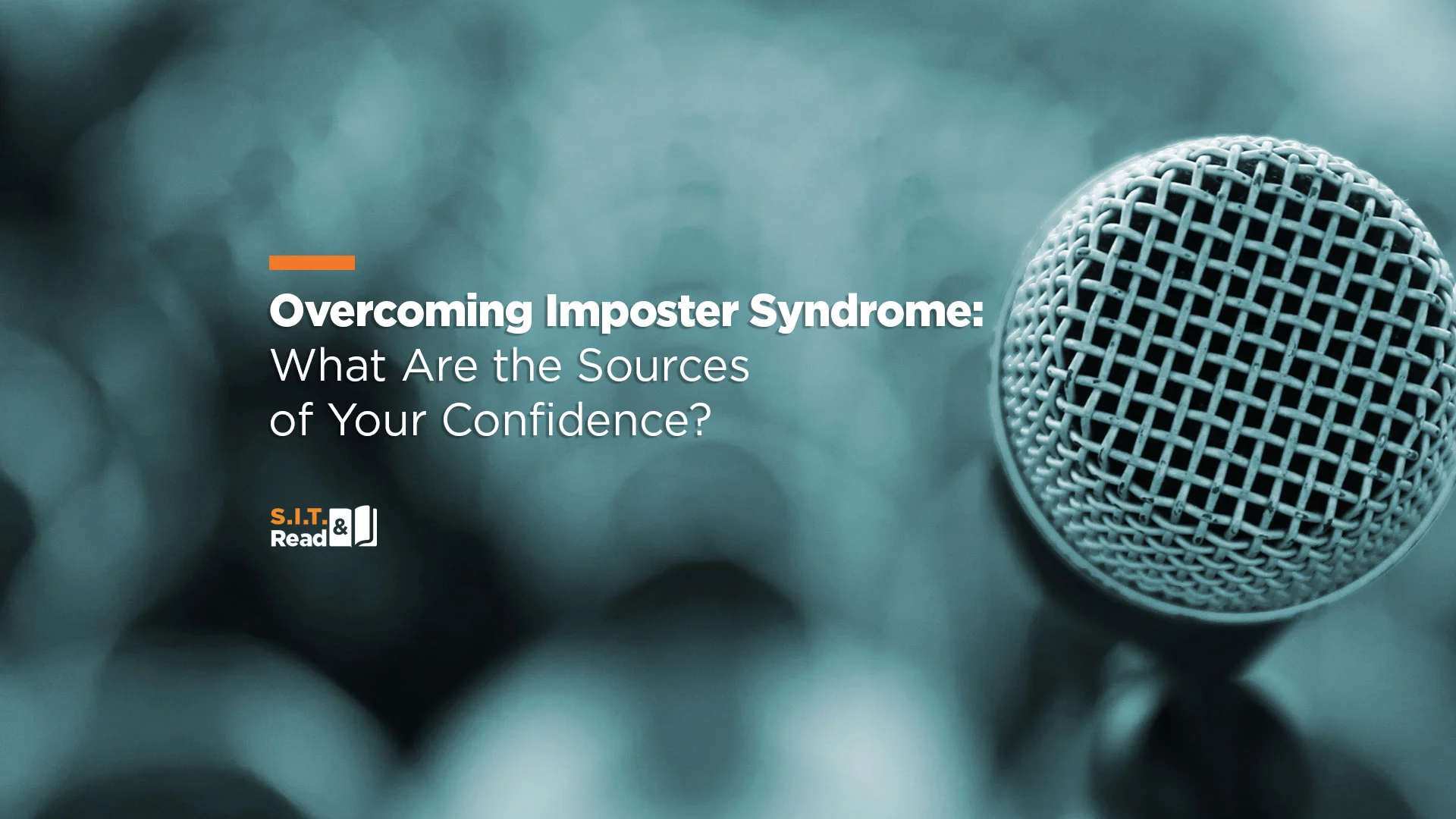Overcoming Imposter Syndrome: What Are the Sources of Your Confidence?


Do we talk enough about imposter syndrome?
I remember the first time I facilitated a live innovation session in front of clients. I had been at my company for quite a few years by then, and had been wing-man in dozens of such sessions. I had been rigorously trained for this. I was dressed for the part. On paper I was ready, but I was shaking in my boots. The session was going well overall, when suddenly one of the participants steered the conversation towards more loaded areas. Like a deer caught in the headlights, it was a sink or swim moment for me. Since running for the hills wasn’t an option (sadly), I had no choice but to keep plunging forward, thinking that at any moment they will read me like a deck of cards. (Afterwards, when the session ended successfully and my breathing resumed to normal, I certainly felt like kicking myself for all the drama I worked myself up over nothing.)
Classic imposter syndrome anyone? Imposter Syndrome is when a person doubts their skills, talents, or accomplishments, and has a constant fear of being exposed as a fraud. A person believes that they’ve succeeded by luck, not because of their talents or qualifications, and that one day – everyone will know that they don’t really have what it takes. It’s hard for them to internalize and own their successes. While any person in any field can experience this, I find that in innovation it’s worse since there’s already added skepticism to begin with.
According to the HBR, Imposter Syndrome disproportionately affects high-achieving people, who find it difficult to accept their accomplishments. At first it was believed to be more common in women, but further research has shown that it affects men and women equally. So if you’ve ever felt that you’re not good enough at work, you’re certainly in good company.
Basically we’re dealing with a psychological state, where it’s in the person’s mind. In general, people have a fear of failure hanging over their heads, so coupling that with imposter syndrome is enough to squash anyone’s self-confidence. And the question that begs is, how can we overcome so that we’re not debilitated by it? Yes, it is plausible that there was an element of luck somewhere in the process in which you’ve been chosen for the role you fill. But more likely it was your qualifications, and now you need to remind yourself of what they are. These are what we call The Sources of My Confidence. Here are five buckets that you can dip into, to help you answer the negative voices in your head (adapt as needed):
- Past successes – Think of roles that you’ve filled successfully, projects that you are proud of, sticky situations that you’ve solved, deadlines that have been met, and achievements from working with or leading a team. You’ve done it before – you can do it again!
- What you bring on a personal level – You have life and professional experience when approaching a task or interacting with people. You are educated – whether due to a university degree and courses, or “street smarts” and know-how gained from your own curiosity and thirst for knowledge. You have an individualized skillset – quick thinking, problem-solving, sensitivity to others, and eloquent. You know how to talk to people and you’re easy to talk with. You’re likeable.
- The organizational umbrella – You have access to your company knowledge base (materials and such). You have people to consult with and throw ideas around with. There are learning opportunities in the company of which you can take advantage.
- What you bring as a member of the team – You have the trust of the team/organization in selecting you for this role. You have people to support you and who look to you for support.
- The process – You follow tried and true company processes and protocols that lead to success. Here’s a shout out to my fellow Innovation Managers and iCoaches – It can be a super daunting role since innovation requires tolerance to ambiguity and you never know for certain what will come out of a session or a meeting. So remind yourself – you are guiding people through a process that you believe in and that works. You are involving intelligent people, and therefore, even just having a regular discussion in a room will yield results.
Imposter syndrome does have an upside to it. A good friend, who is VP Product of a large startup says that she (and her other successful siblings) suffer from it tremendously. However, instead of having it get them down, they use it to push themselves forward. They find it makes them work harder, learn more in order to prove to themselves and “others” that they can really do it. At the end of the day it’s making them more successful. What doesn’t kill you makes you stronger.
Recent Posts
Innovation Behavior
Innovation is a skill, not a gift. Top organizations drive growth by nurturing and investing…
Should you learn TRIZ? – Yes. ….and No.
Are you in the world of problem solving? Is problem solving a skillset you have…
What Lies Ahead in 2024?
5 Data-Driven, Customer-Centric trends we’ve identified This is not just another conventional forecast. Over nearly…
Fork or Chopsticks – Which Innovation Tools Do You Use?
Imagine a chef, who only uses a spoon. Imagine a dentist, who only uses a…
The Moat Mentality: Exploring New Frontiers in Innovation Methodologies
In investing and business strategy, we often speak in terms of moats. Warren Edward Buffett…
Was it a Breakthrough or an Adjacency?
This year, P&G’s Febreze celebrates its silver anniversary as a brand. But not all 25…


